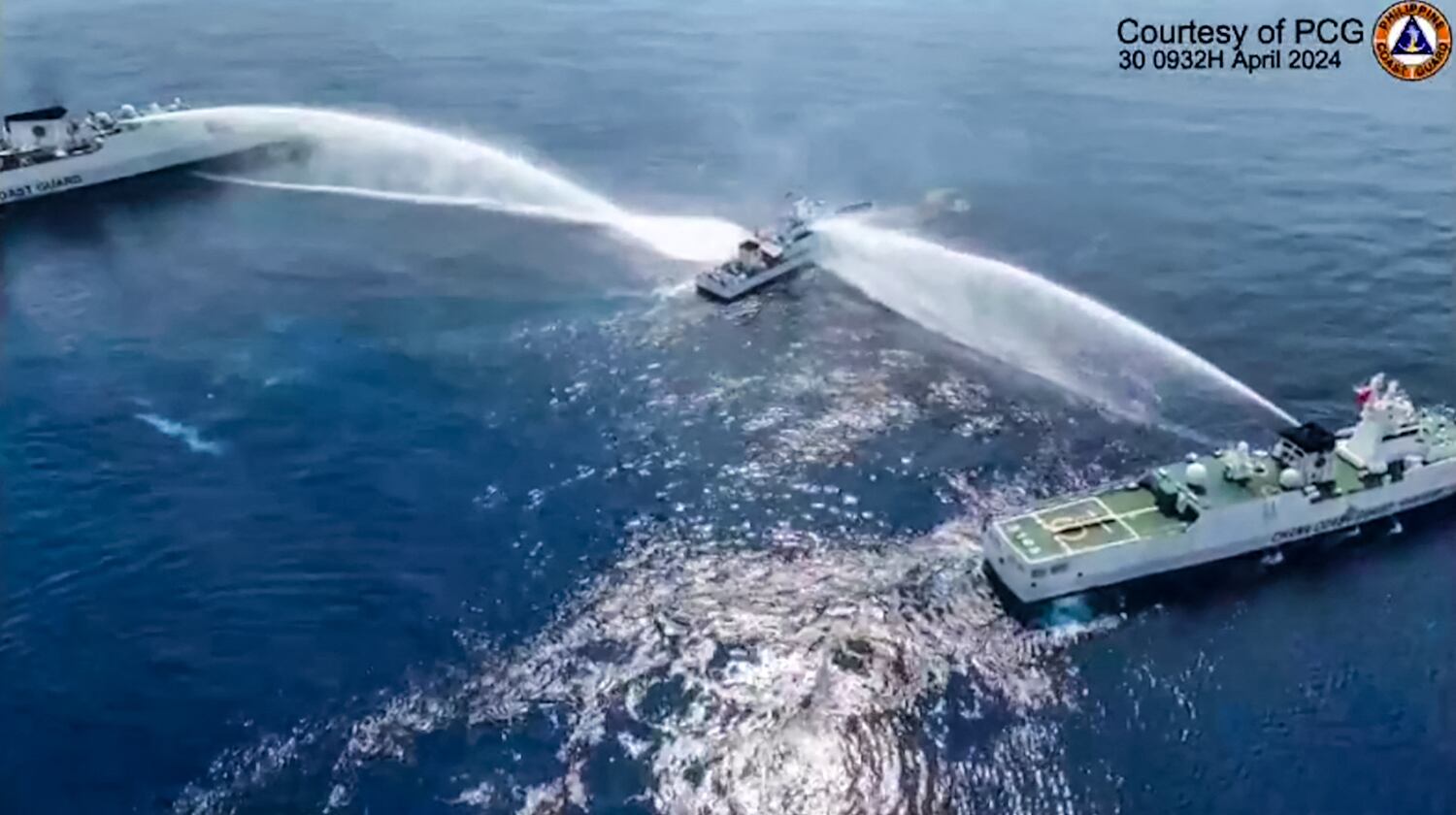China has announced the baselines of its territorial sea around the Scarborough Shoal to strengthen its claim over the South China Sea feature that lies within the Philippines’ exclusive economic zone.
China has also formally named 64 islands and reefs, many of which are claimed by several countries, risking escalating tensions with its neighbors.
A baseline under the U.N. Convention on the Law of the Sea, orUNCLOS, is a line that runs along the coast of a country or an island, from which the extent of the territorial sea and other maritime zones such as the exclusive economic zone and extended continental shelf are measured.
A foreign ministry’s spokesperson in Beijing said in a statement on Sunday that the Chinese government delimited and announced the baselines of the territorial sea adjacent to Huangyan Dao “in accordance with international law,” referring to the shoal by its Chinese name.
“This is a natural step by the Chinese government to lawfully strengthen marine management and is consistent with international law and common practices,” the ministry said, adding: “Huangyan Dao has always been China’s territory.”
Radio Free Asia contacted the Philippine foreign department for comment but did not receive a reply by the time of publication.

Scarborough Shoal, known in the Philippines as Bajo de Masinloc, is a triangular chain of reefs about 125 nautical miles (232 kilometers) from Luzon, the main Philippine island. Claimed by China, the Philippines and Taiwan, the shoal has been under Beijing’s de-facto control since 2012.
In 2016, an U.N. arbitration tribunal ruled against all of China’s claims to the reefs in the South China Sea, including to the Scarborough Shoal. It also ruled that Scarborough Shoal is a rock, not an island, which means that even if the shoal is entitled to a 12-nautical-mile territorial sea, it cannot generate an exclusive economic zone but instead is recognized as part of the exclusive economic zone and continental shelf of the Philippines.
‘Cornering the Philippines’
Beijing’s announcement came right after Manila passed the Maritime Zones Act and the Archipelagic Sea Lanes Law, which China “strongly condemns and firmly rejects,” according to the Chinese foreign ministry. The ministry also reiterated that China had neither accepted nor participated in the 2016 arbitration, nor did China accept or recognize the ruling.
Also on Sunday, the Chinese ministries of natural resources and of civil affairs announced Chinese standard geographical names for 64 islands and reefs in the South China Sea, including several features within the Second Thomas Shoal and Sabina Shoal, both also claimed by the Philippines, Vietnam and Taiwan.
The naming is seen by analysts as to assert China’s sovereignty over the features.
“China is really pushing the Philippines to the corner, now Manila has no choice but to respond,” said a regional South China Sea expert who declined to be identified because they are not authorized to speak to the media.
“As the formalization of names is also related to Vietnam’s claims over some South China Sea features, I expect the Vietnamese government to react in the near future,” added the expert, “This is an escalation of tension on China’s part.”

Separately, Jay Batongbacal, a maritime expert from the University of the Philippines College of Law, told RFA that “China’s reaction and statements are not unexpected, given their increasingly aggressive posture and belligerence toward the Philippines in the past decade.”
“They are naturally opposed to the Philippines’ official actions that implement international law, UNCLOS, and the 2016 South China Sea Arbitration Award,” Batongbacal said.
Chinese foreign ministry spokeswoman Mao Ning, while commenting on Manila’s Maritime Zones Act, said China urged the Philippines to “immediately end any unilateral move that may escalate the dispute and complicate the situation, and keep the South China Sea peaceful and stable.”
“China reserves the right of taking all measures necessary,” Mao added.
Batongbacal referred to a June clash between a Philippine resupply mission to an outpost in the Second Thomas Shoal and Chinese vessels as he warned of the possibility of China escalating risks in disputed waters.
“Given the array of military and paramilitary forces that China has been employing against the Philippines, including private fishing vessels and civilian government ships, and the illegal use of force against the Philippines on 17 June 2024, any further escalation that increases the risk of armed conflict can only come from China,” he told RFA.
RELATED STORIES
Increased risk of conflict in South China Sea, forum warns
East Asia fails to adopt South China Sea statement amid finger pointing
EXPLAINED: Sabina Shoal, the newest flashpoint in the South China Sea
Edited by Taejun Kang.
This content originally appeared on Radio Free Asia and was authored by RFA Staff.
This post was originally published on Radio Free.